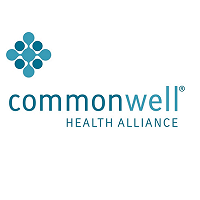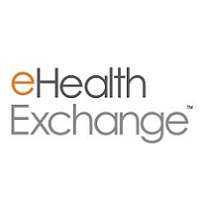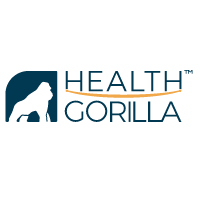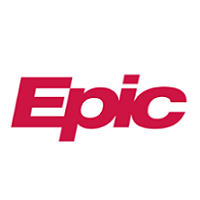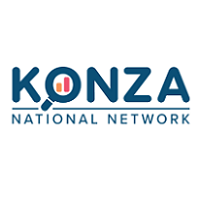We have now past the 19 year mark in our quest for healthcare interoperability. Under an executive order from president G W Bush, the ONC was established and Dr. David Brailer was dubbed “America’s first Health Information Czar.” The Meaningful Use program was then born out of the HITECH Act and Merit-Based Incentive Payment System was then born our of the MACRA legislation. And then information sharing from the CURES Act. And now the release of Trusted Exchange Framework and the Common Agreement (TEFCA). All trying to move our healthcare system to the digital age, better outcomes, controlling and reducing costs, and patient access to their health data. It has not been an easy road and the debate of the journey will never end.
TEFCA News
Top Takeaways from the TEFCA Recognition Event
By Elise Sweeney Anthony; John Rancourt and Mark Knee, ONC
It’s hard to convey the excitement that was in the HHS Great Hall during the TEFCA Recognition Event on February 13, 2023. It was great to see so many gather with HHS Secretary Becerra to recognize the six applicant organizations that have been approved for onboarding as Qualified Health Information Networks (QHIN)—CommonWell Health Alliance, eHealth Exchange, Epic TEFCA Interoperability Services, Health Gorilla, Kno2, and KONZA.
It was a special opportunity to acknowledge the benefits of public-private partnership and to hear first-hand just what this milestone event means for individuals across the country.
Read the blog post for a few of the top takeaways from the event.
RCE Monthly Informational Call
Tuesday, March 21 | 12:00 p.m. – 1:00 p.m. ET
The Recognized Coordinating Entity (RCE) hosts a public informational call as an opportunity to share information about the progress to-date on the third Tuesday of each month. View previous calls.
Register Here
Spotlight on Community Networks
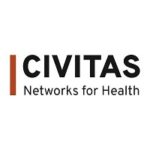 The Network for Regional Healthcare Improvement (NRHI) and the Strategic Health Information Exchange Collaborative (SHIEC) announced a formal affiliation between the two organizations to form a new organization named Civitas Networks for Health. The organization serves as a platform for local nonprofit health collaboratives and health information exchanges to grow and thrive. Follow them @civitas4health.
The Network for Regional Healthcare Improvement (NRHI) and the Strategic Health Information Exchange Collaborative (SHIEC) announced a formal affiliation between the two organizations to form a new organization named Civitas Networks for Health. The organization serves as a platform for local nonprofit health collaboratives and health information exchanges to grow and thrive. Follow them @civitas4health.
Civitas News
Collaboratives in Action: Health Data Partnerships for Public Health Improvement Webinar
Hosted by Civitas Networks for Health, featured from Colorado Community Managed Care Network (CCMCN), Colorado Department of Public Health and Environment (CDPHE), the Association of Immunization Managers (AIM), the American Immunization Registry Association (AIRA), and the Association of State and Territorial Health Officials (ASTHO), discussing their work on the Office of the National Coordinator for Health Information Technology (ONC) Immunization Data Exchange, Advancement and Sharing (IDEAS) program. View the recording.
The Network has continued to grow throughout its’ inaugural year. They have welcomed 14 additional new members since the last update on membership growth in May.
State HIE News
WISHIN Earns NCAQ Data Aggregator Validation Status Again
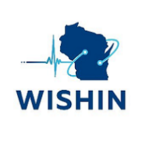 WISHIN (@WISHIN_Pulse) has renewed its National Committee for Quality Assurance (NCQA) Data Aggregator Validation (DAV) status as a data aggregator in cohort 4, effective December 7, 2022. The validation involves a meticulous review of WISHIN’s data collection processes and an audit which validates the existence of data in the network to the data that originates from the source EHR/EMR. As a result, 44 sources of hospital, clinic, and diagnostic data have been certified to be used by health plans as supplemental data which has been primary source verified.
WISHIN (@WISHIN_Pulse) has renewed its National Committee for Quality Assurance (NCQA) Data Aggregator Validation (DAV) status as a data aggregator in cohort 4, effective December 7, 2022. The validation involves a meticulous review of WISHIN’s data collection processes and an audit which validates the existence of data in the network to the data that originates from the source EHR/EMR. As a result, 44 sources of hospital, clinic, and diagnostic data have been certified to be used by health plans as supplemental data which has been primary source verified.
CRISP to Expand Medicaid Redetermination Notification Project
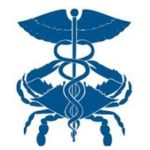 CRISP, the state-designated health information exchange (HIE) of Maryland, announced plans to expand its Medicaid Redetermination Notification project to all interested providers and Managed Care Organizations (MCOs).
CRISP, the state-designated health information exchange (HIE) of Maryland, announced plans to expand its Medicaid Redetermination Notification project to all interested providers and Managed Care Organizations (MCOs).
Industry and Contract News
DirectTrust reports Direct Exchange transactions surpass 3.7 billion; more than 72 million transactions per month in 2022
DirectTrust (@directtrustorg), a non-profit healthcare industry alliance created to support secure, identity-verified electronic exchanges of protected health information, announced fourth quarter 2022 metrics, as well as the cumulative number of 3.7 billion Direct Exchange transactions since 2014. The alliance collects these metrics on a quarterly basis from Accredited HISP members to measure the use of the DirectTrust national network for interoperable, secure Direct exchange of health information.
InterSystems Solutions Earn Certified Data Partner Designation by NCQA’s Data Aggregator Validation Program
InterSystems (@intersystems), a creative data technology provider dedicated to helping customers solve the most critical scalability, interoperability, and speed problems, announced that the InterSystems HealthShare Unified Care Record has earned the Certified Data Partner designation in the new National Committee for Quality Assurance’s (NCQA) Data Aggregator Validation (DAV) program.
Implicity Releases SMART on FHIR App
Implicity (@ImplicityHealth), a company in remote patient monitoring (RPM) and cardiac data management solutions, released a new SMART on FHIR application to improve interoperability and workflow efficiencies for providers. The app allows Epic users to view alerts and reports being generated on the Implicity platform directly within the patient record.
The Sequoia Project Launches Consumer Voices Workgroup To Improve Patient Access to Health Information
The Sequoia Project (@sequoiaproject), a non-profit and trusted advocate for nationwide health information exchange, launched the Consumer Voices Workgroup to understand first-hand from consumers the barriers they face accessing, using, and sharing their health information and to inform strategies to address the barriers. The non-profit, known for convening industry and government within its Interoperability Matters cooperative, is engaging consumers, patients, care partners and caregivers for the first time in its pursuit of nationwide seamless, secure health information sharing for better and more effective healthcare.
Hires and Openings
Common Ground Health
Founded in 1974, Common Ground Health is one of the nation’s oldest and most effective regional health planning organizations. Located in Rochester’s Neighborhood of the Arts, the nonprofit serves the nine county Finger Lakes region. They currently have an opening for a Data Administrator.
Delaware Health Information Network (DHIN)
The Delaware Health Information Network (DHIN) is the nation’s first statewide health information exchange. Established by statute as a not-for-profit public instrumentality, DHIN’s primary mission is to facilitate the design and implementation of an integrated, statewide health data system to support the information needs of consumers, health plans, policymakers, providers, purchasers and researchers to improve the quality and efficiency of health care services in Delaware. They have an opening for Director of Data Analytics.
San Diego Health Connect
San Diego Health Connect is the health information utility that unifies the San Diego & Imperial Counties healthcare ecosystems. They securely connect providers, patients, private health information exchanges (HIEs) and others to improve the quality and cost of care in our community. They have an opening for CEO/Executive Director.
NYeC – New York eHealth Collaborative
New York eHealth Collaborative (NYeC) is a not-for-profit organization working in partnership with the New York State Department of Health to improve healthcare by collaboratively leading, connecting, and integrating health information exchange across the State. They have openings for the following position: Healthcare Data Analyst
Civitas is Hiring!
Development Manager – Civitas has identified a need for a full-time Development Manager to assist the organization in both maintaining and growing funding while increasing membership.
The ideal candidate will have a working knowledge of the non-profit sector, member-based organizations/associations, grant acquisition and management, and project-based funding.
Reporting to the Senior Director, Business Development and Programs, the Development Manager will assist the organization in developing diverse and ongoing sources of financial support while managing and developing relationships with funders and sponsors. As membership development is essential to the long-term growth of the organization, the Development Manager will also develop and oversee membership recruitment and retention strategies.
ONC's Cures Act Final Rule
In May of 2020 the 21st Century Cures Act: Interoperability, Information Blocking, and the ONC Health IT Certification Program released by the ONC and published in the Federal Register. Here is a quick timeline.
Certification
- 6/30/20 – General Effective Date
- 4/5/21 – Compliance requirements start for information blocking, assurance, and API
- 4/5/21 – HIT developers prohibited from restricting certain communications
- 12/15/21 – Submit initial real world testing plans
- 4/1/22 – 1st attestation to conditions of Cert required
- 12/31/22 – New HL7 FHIR API capability and other update criteria must be made available
- 3/15/23 – Submit initial real world testing results
- 12/31/23 – EHI export capability must be made available
The TEFCA Players
ONC Recognized Coordinating Entity (RCE)
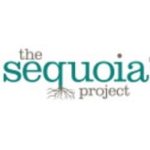 The Recognized Coordinating Entity (RCE) – The Sequoia Project (@sequoiaproject) is responsible for developing, implementing, and maintaining the Common Agreement component of the Trusted Exchange Framework and Common Agreement (TEFCA). The Common Agreement is the baseline technical and legal requirements for health information networks to share electronic health information and is part of the 21st Century Cures Act (Cures Act).
The Recognized Coordinating Entity (RCE) – The Sequoia Project (@sequoiaproject) is responsible for developing, implementing, and maintaining the Common Agreement component of the Trusted Exchange Framework and Common Agreement (TEFCA). The Common Agreement is the baseline technical and legal requirements for health information networks to share electronic health information and is part of the 21st Century Cures Act (Cures Act).
In addition they will collaborate with ONC to designate and monitor Qualified Health Information Networks (QHIN), modify and update an accompanying QHIN Technical Framework, engage with stakeholders through virtual public listening sessions, adjudicate noncompliance with the Common Agreement, and propose sustainability strategies to support TEFCA beyond the cooperative agreement’s period of performance.
TEFCA Timeline
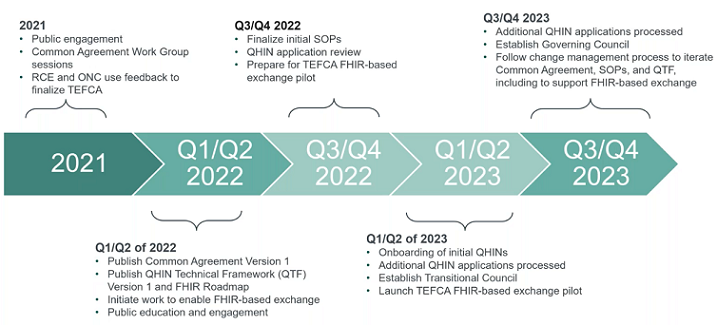
RCE Releases TEFCA Facilitated FHIR IG Draft 2, and Updated Versions of QHIN Onboarding & Designation SOP and QHIN Application
- TEFCA Facilitated FHIR Implementation Guide, Draft 2 (Pilot Version)
- updated versions of the Qualified Health Information Network (QHIN) Onboarding & Designation Standard Operating Procedure (SOP)
- QHIN Application for stakeholder feedback.
6 Initial Announced QHINs
Interoperability Market
According to Allied Market Research, the healthcare interoperability solutions market size was valued at $5,320.0 million in 2020, and is expected to reach $21,544.6 million by 2030, registering a CAGR of 14.9% from 2021 to 2030. Interoperability in healthcare refers to timely and secure access, integration and use of electronic health data so that it can be used to optimize health outcomes for individuals and populations. As populations around the world age and people live longer, interoperability and data sharing are going to become increasingly critical for delivering effective healthcare. Interoperability is the ability of two or more systems to exchange health information and use the information once it is received.
According to the report published by Fior Markets, the global healthcare data interoperability market is expected to grow from USD 2.83 billion in 2020 and to reach USD 5.80 billion by 2028, growing at a CAGR of 9.38% during the forecast period 2021-2028. The primary reasons driving healthcare interoperability market growth include a growing focus on patient care, a growing need to tighten healthcare costs, and government measures to improve patient experience of treatment. System interoperability, information interchange, and data availability are all important factors in improving health outcomes. Individual health data is mobilized throughout the whole range of care providers in health organizations, enabling coordinated, safe, and high-quality treatment that supports payment reforms, transparency efforts, and individuals’ ability to control their health.

